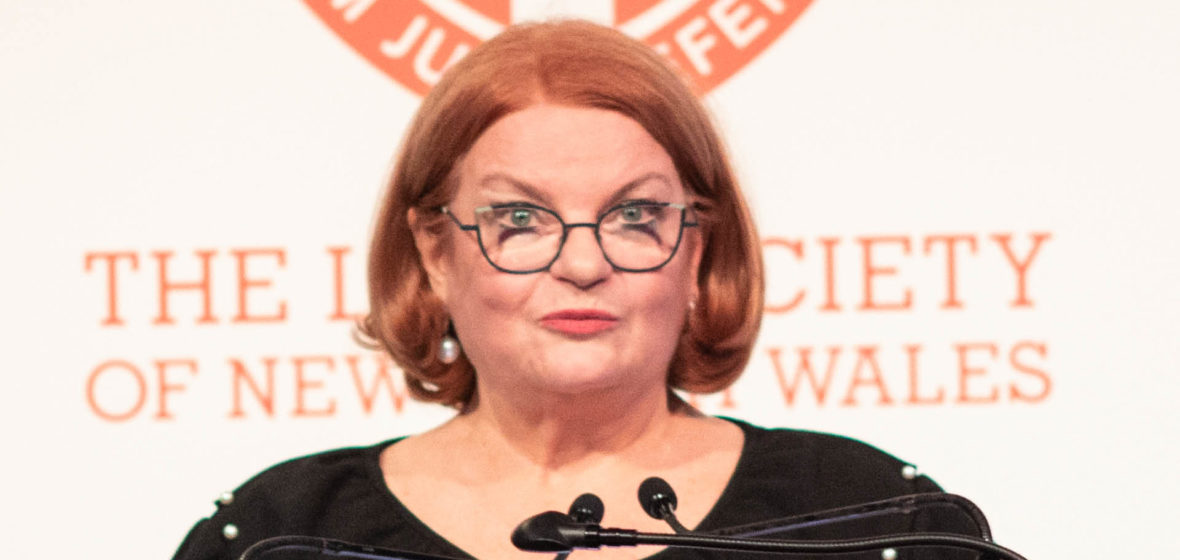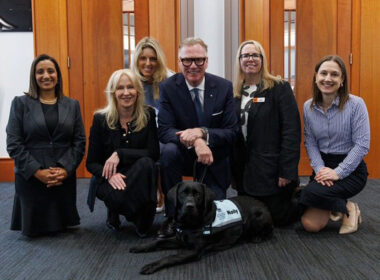The Law Society of NSW has called on law firms and legal practices to commit to eliminating sexual harassment, discrimination and bullying by signing up to its revised Charter for the Advancement of Women.
President Juliana Warner, who was one of the first working mothers promoted to partnership at top-tier firm Herbert Smith Freehills, announced the launch of a revised version of the Charter at an International Women’s Day breakfast in Sydney on Tuesday.
“The updated Charter is part of our ongoing work to address sexual harassment in the legal workplace and drive positive change through our policy work, advocacy and regulatory functions,” said President Warner.
“This version has more targeted and explicit women’s advancement policies that deal with not only the promotion of women in the workplace, but ensuring women from all backgrounds feel safe at work, have flexibility if they are parents, and are not marginalised if they raise complaints about bullying or harassment.”
The Charter for the Advancement of Women was first launched in 2016 as a voluntary pledge for organisations to commit to establishing strategies to retain women and advance them to senior executive management roles. Almost 200 organisations, including law firms, large corporates, and government departments signed up to the original Charter.
The revised Charter increases its emphasis for signatories to take a strong stance against sexual harassment and bullying at work, by implementing training for employees and the establishment of safe, accessible, and transparent complaints processes, among other recommendations.
“As a Law Society, we aim to lead; we aim to encourage; and we aim to provide our members with the best possible resources, such as the Charter, to achieve genuine change.”
– Juliana Warner, President of the Law Society of NSW
Lawyer Nicholas Stewart, a member of the Law Society’s Diversity and Inclusion Committee that put together the new Charter, said the committee hoped the changes would help to “stamp out sexual harassment and intimidation of women in the legal profession”.
“Diversity and inclusion is an area which is constantly evolving, and the Committee is firmly of the view that it is important that we regularly revisit the resources which we have developed to promote greater diversity and inclusion in the profession,” Stewart said.
Danielle Kelly, also a member of the Diversity and Inclusion Committee, said the redesigned Charter would address issues raised by the Law Council of Australia’s National Action Plan to reduce sexual harassment in the legal profession, which was published in December. The plan noted there were several “drivers” of sexual harassment in the legal profession, including the traditionally hierarchical structure of law firms, and male-dominated, competitive cultures that may “turn a blind eye to the behaviour of profitable partners”.
“Given the low rates of reporting of inappropriate behaviour within the profession, it becomes even more important for law firm leaders to actively ensure that those with less power are supported to thrive. This means interrogating whether the organisation’s systems and processes are inclusive, and the Law Society’s Charter for the Advancement of Women aims to provide a framework for considering these systems and processes,” Kelly said.
Women have outnumbered men in the Australian legal profession since 2019, according to data from the Law Society of NSW National Profile of the Profession. However, the underrepresentation of women at leadership levels – which hovers at around 30 per cent women in top-tier partnership – has long been seen as a barrier to equity and diversity.
The Charter for the Advancement for Women in the Legal Profession can be downloaded here.
Sign up to the Charter and view signatories here.




